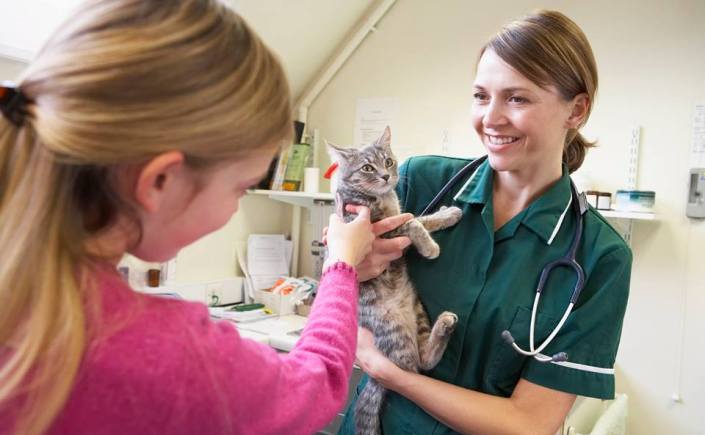Check out the Michigan Humane Society blog on Mondays to see common veterinary questions answered. If you have an immediate medical concern with your pet, please call your veterinarian! If you have a non-urgent question you would like answered on the blog, you can comment here or email us at mail(at)michiganhumane.org.
“I keep fresh water down for my kitten but he won’t drink any. How should I encourage him?”
Many cats are not big water drinkers and there are several things you can try to encourage your kitten to drink more. Some cats like to drink from water fountains. There are now several types of water fountains available at most pet stores or from online pet supply companies. The fountains offer a source of moving water that entices a lot of cats to drink.
Canned food is another way of increasing your cat’s fluid intake. You can add additional water to the canned food. Many cats enjoy a bit of canned food soup! Try small amounts of water at first and mix it well.
You can dilute some tuna juice with water and freeze it in ice cube trays. Defrost a couple cubes and offer that daily.
Keep the water bowl clean and offer fresh water daily. If you have more than one cat, you may want to have more than one water bowl available.
“My dog has allergies that are pretty bad right now. Other than allergy pills, what can I do to help him feel better?”
A visit to your veterinarian is recommended to determine what may be the cause of the allergies, and to help rule-out other medical concerns.
If your dog seems itchy and/or develops skin or ear infections during the warmer months, he could have environmental allergies to grasses, pollen and other things outside. If allergy pills (antihistamines) alone don’t provide relief, your veterinarian can prescribe other medications that may be more effective. Other things you can do include bathing to wash allergens off his coat, and limiting his contact time outdoors. Some dogs will tolerate wearing a t-shirt while outside, which can help decrease contact with allergens. Washing his feet after he has been outside can be helpful.
Flea control is important. All it takes is the bite of one flea to cause a reaction in some pets. Your veterinarian can recommend an effective flea control product. If your dog’s allergies seem to continue year round, it is important to talk to your veterinarian about the potential for food allergies. A dog can develop an allergy to food at any time, even if it is a product he has been eating for years. A strict diet trial with a prescription food is needed to help rule-out a food allergy.
Allergies can be frustrating, are usually life-long and it can be difficult to determine the underlying cause. A combination of therapies is often needed to keep an allergic animal comfortable. It is important to speak with your veterinarian who can develop a plan specific to your dog’s needs.
Need to see a veterinarian? Make an appointment with an MHS Vet Center today!


September 22, 2014 at 1:37 pm
What meds by Rx that really help can I give my dog for itching. Besides depo medrol shots
LikeLike
September 22, 2014 at 11:48 pm
we have a dog with pretty severe allergies to outside. this year we started wiping off his paws with sensitive skin baby wipes when he comes in and that has helped a lot. first summer in a long time he has not had to have steroid shots just about every month.
LikeLike
January 28, 2015 at 11:59 pm
I get my cats to drink much more water when I use bottled spring water. They love it. I am on a fixed income, however when I see what a difference there is in their water intake on a daily basis it is worth it to me.
LikeLike